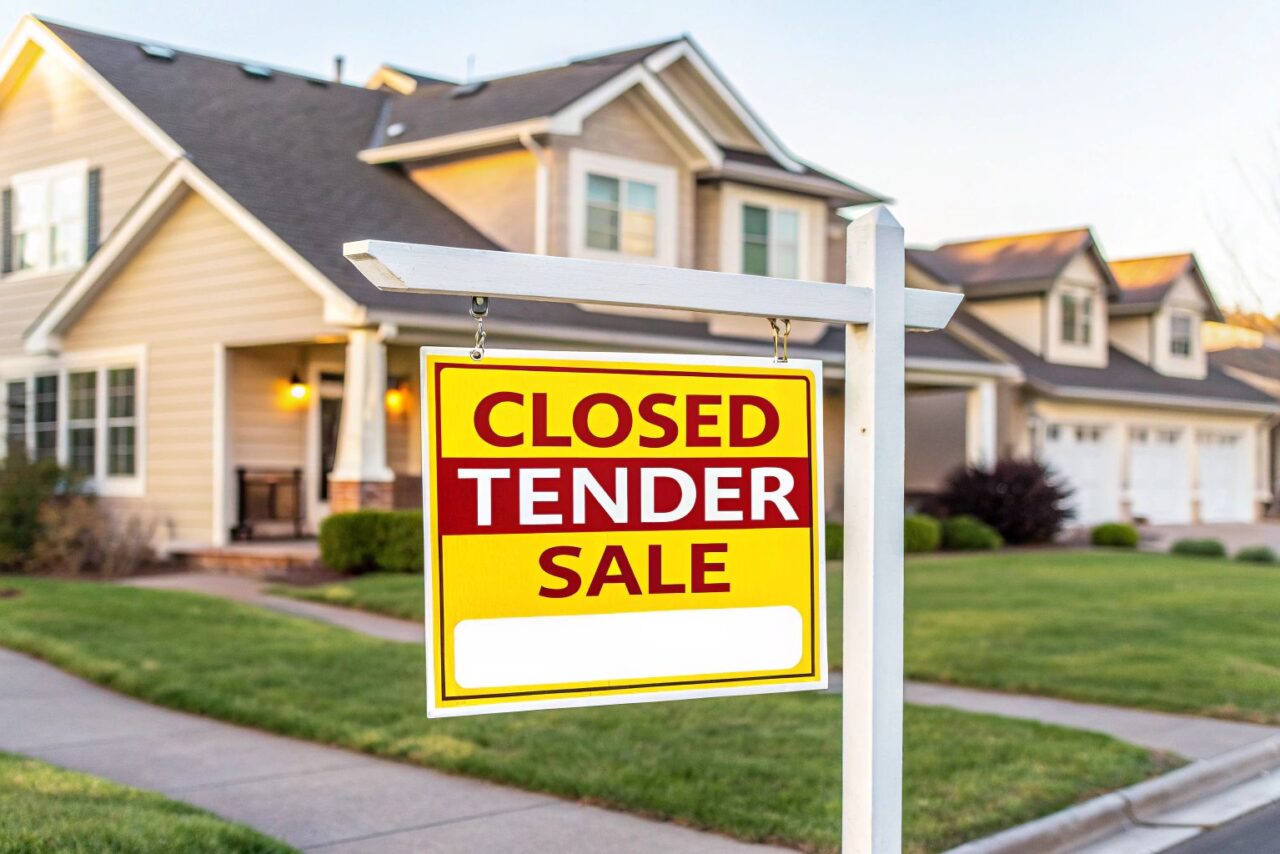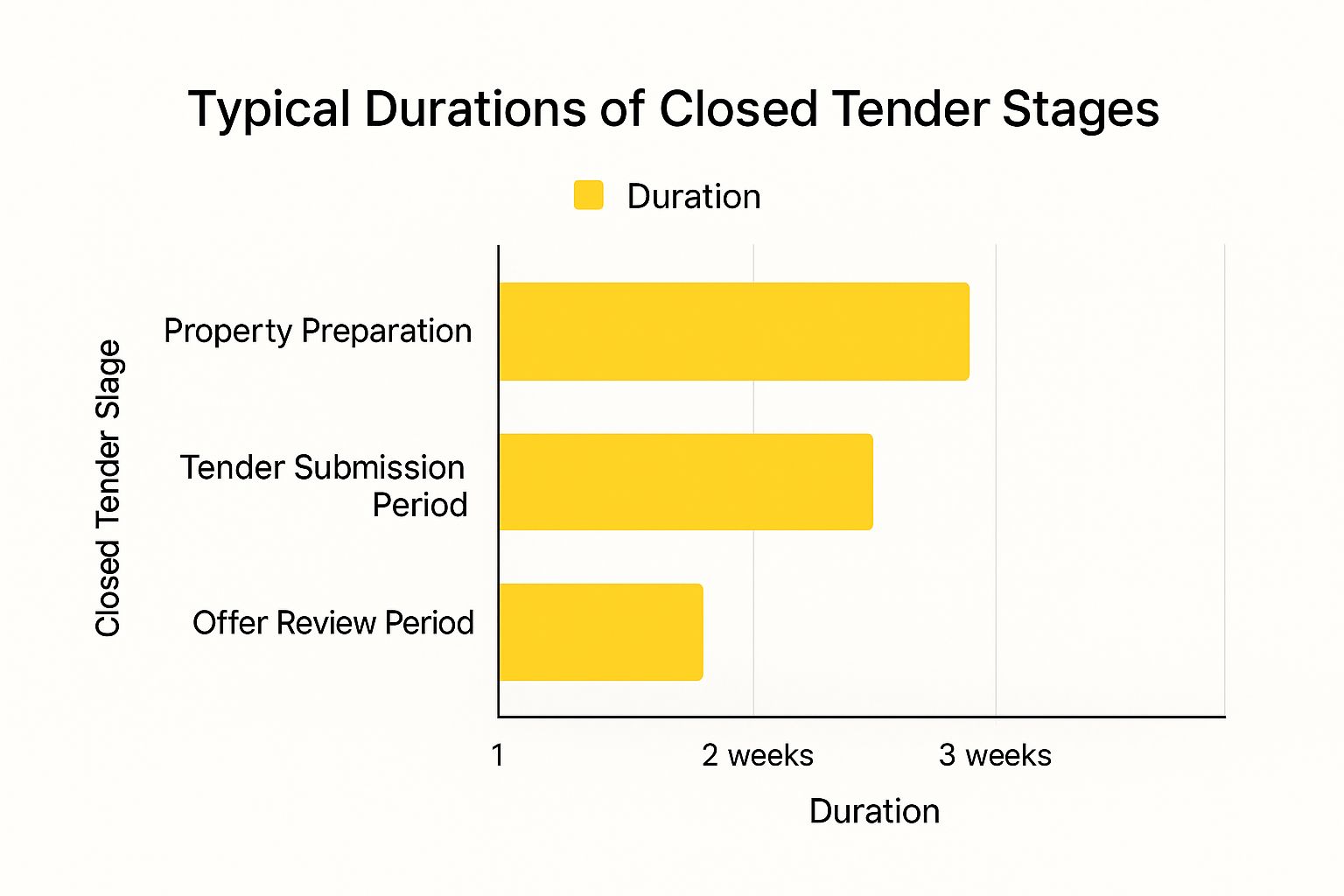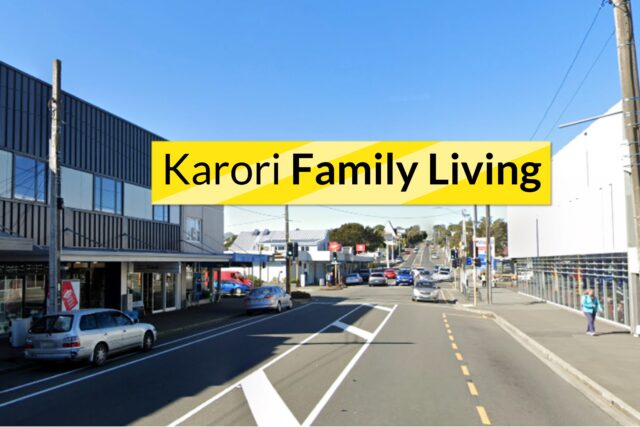
If you’re exploring how to sell your property in Wellington, you’ve likely come across the term “closed tender.” It’s a discreet, effective sales method that works incredibly well in our unique market. Think of it like this: instead of a public auction, you invite serious buyers to submit their very best, private offer by a set date. This method puts you, the seller, in complete control.
Let’s unpack what a closed tender sale means and why it could be the perfect strategy for selling your home in suburbs like Karori, Thorndon, or Khandallah.
Unpacking the Closed Tender Sale

A closed tender is a confidential and structured way to achieve the best possible result for your property. All interested buyers are invited to submit their strongest written offer by a non-negotiable deadline. It creates a level playing field where every potential buyer gets one chance to put their most compelling terms forward, encouraging them to be serious from the start.
Key Characteristics of a Tender
So, what makes this sales method a great choice in Wellington?
- Privacy is paramount. All offers are kept completely confidential, so buyers aren’t influenced by what others are bidding. Many of my clients in areas like Wadestown, Ngaio and Island Bay really value this discretion.
- A firm deadline creates urgency. A fixed closing date encourages genuinely interested buyers to get their due diligence done and submit their best offer on time.
- You, the seller, are in control. After the tender closes, you can review all offers at once. You then choose the one that works best for you and that’s not always about the highest price; settlement dates and conditions are just as important.
This sales strategy is a game-changer for unique or hard-to-price properties, whether it’s a classic character home in Thorndon or an architecturally designed masterpiece in Karori. It lets the market determine a home’s true value without the public pressure of an auction. As your local Wellington real estate professional, my role is to manage this process seamlessly for you.
A Step-by-Step Guide to the Closed Tender Process
When you break it down, the closed tender process is a straightforward and manageable journey. Let’s walk through what you can expect when selling your Wellington home this way.
Getting Your Property Ready for the Market
First, we need to prepare your property to capture buyers’ imaginations. This is where the effort you put into presentation truly pays off. As an expert in the Wellington market, I can connect you with my professional network of contacts from painters and gardeners to cleaners and legal advisors to ensure your property looks its absolute best and the conveyancing is straight forward.
Once your home is sparkling, we launch a tailored marketing campaign. It’s not about putting a price on it; it’s about strategically building excitement and interest among committed buyers across Wellington and beyond, all leading up to the tender deadline.
The Tender Period and Closing Day
During the tender period, interested parties submit their offers in a sealed document. A key feature of a closed tender in New Zealand is that none of these offers are opened until after the official closing date. This ensures a fair and transparent process for everyone.
The infographic below gives you a good idea of the typical timeline for each stage.

As you can see, the main time investment is in preparing the property for the market. The decision-making phase is much shorter and more focused.
Reviewing the Offers and Making Your Decision
After the tender closes, all offers are presented to you at once. This is the moment you’ve been working towards, and you are firmly in control. On the day you’ll typically review everything and decide on your next move.
Here are your options:
- Accept the offer that best suits your needs, considering the price, conditions, and proposed settlement date.
- Negotiate with one or more of the strongest buyers to fine-tune the terms.
- Decline all offers if none of them meet your expectations.
You are under no obligation to accept any offer. The legal side is crucial here, and understanding the NZ ADLS Agreement for Sale and Purchase is essential. This structured approach gives you complete control, allowing you to make a confident, well-informed decision.
Tender vs Auction vs Deadline Sale in Wellington

Choosing the right way to sell your home in Wellington can feel like a big decision. It becomes much easier once you understand the key differences between the main methods. Each has unique strengths, and the best fit depends on your property, your personal circumstances, and current market conditions.
A Head-to-Head Comparison
Let’s break down the three main sales methods you’ll encounter in Wellington. Whether you’re selling a classic villa in Kelburn or a modern apartment in Te Aro, one of these approaches will be the right path for you.
The best sales method isn’t just about the highest price. It’s about finding the strategy that perfectly matches your property’s unique appeal and what you want to achieve as a seller.
The table below offers a straightforward comparison, showing you exactly what sets each method apart, from price transparency to your flexibility as the owner.
Comparing Wellington’s Property Sale Methods
This table provides a snapshot of the three most common ways to sell a home in our market, helping you see how they stack up.
| Feature | Closed Tender Sale | Auction | Deadline Sale |
|---|---|---|---|
| Price Guidance | No price is advertised, encouraging buyers to focus on value. | No price is advertised, but live bidding reveals the market level. | No price is advertised, similar to a tender. |
| Buyer Conditions | Buyers can include conditions, but unconditional offers are often stronger. | Bids must be unconditional, which can limit the buyer pool. | Buyers can include conditions, but unconditional offers are often stronger. |
| Privacy | High. All offers and negotiations are completely confidential. | Low. The bidding process is public, open, and transparent. | Moderate. Offers are private, but the process is less formal than a tender. |
| Seller Flexibility | High. You review all offers at once and can negotiate with any party. | Low. The highest bidder on the day wins, provided the reserve is met. | High. Similar to a tender, giving you time to review and negotiate. |
As you can see, the right choice depends on what’s most important to you: speed, confidentiality, or attracting the widest range of buyers.
The Key Difference Between Tender and Deadline Sale
At first glance, these two can seem very similar, but there’s one crucial distinction.
In a true closed tender, the process is tightly controlled offers are submitted confidentially and only reviewed once the deadline has passed. While structured and market-facing, its strength lies in creating a level playing field and encouraging competitive bidding.
With a deadline sale, however, the seller often reserves the right to review and even accept an offer before the closing date. This might be seen as an advantage, but only if you’re reasonably confident the buyer’s offer is suitable and other buyers have had a chance to consider your property.
Having a chat with an experienced local agent like me, Halina, can help you weigh these options. I can provide tailored advice on which strategy will best suit your property and help you achieve your goals in suburbs like Island Bay, Wadestown, Ngaio, or Brooklyn.
The Strategic Advantages of Selling by Tender

So, why choose a closed tender in Wellington’s dynamic market? It comes down to powerful benefits that put you, the seller, in a strong position. It creates healthy competition without the public pressure of an auction.
When you invite confidential offers, you encourage serious buyers to put their best foot forward from the start. They know they only get one shot, which makes them think carefully about both the price and the conditions. This approach works especially well for unique, hard-to-price properties you find in suburbs like Newtown, Mount Victoria, Kelburn or Wilton.
Privacy and Control
One of the biggest draws for many of my clients is privacy. From the offers to any negotiations, everything is kept completely confidential. It’s the perfect fit if you prefer not to have your sale become public knowledge.
Beyond discretion, a tender gives you incredible control. You’re not just looking at the price. You get to weigh up every offer based on what truly matters to you.
This might include:
- A settlement date that aligns perfectly with your moving plans.
- An offer with fewer or more appealing conditions, leading to a smoother sale.
- The overall strength of the buyer’s position, giving you extra certainty.
This means you can choose the offer that best suits your life and goals, not just the highest number. A deep understanding of current Wellington’s market conditions is vital to making the most of this control. As an experienced Ray White agent, I know how to craft a marketing campaign that attracts the right buyers to maximise these advantages and deliver a fantastic result for you.
To understand why a tender is so effective, it helps to step into the buyer’s shoes: buying by tender.
The ‘blind bid’ nature of a tender creates a powerful sense of urgency. Buyers know they have one opportunity, which encourages them to table their strongest offer from the get-go rather than holding back for negotiations.
The Fear of Missing Out
This dynamic is particularly effective in Wellington’s sought-after suburbs. The fear of missing out on a unique character home in a place like Ngaio, Kelburn or Khandallah can be a huge motivator, often leading to strong, clean offers with favourable terms for the seller.
Current market conditions, such as RBNZ interest rate changes or tighter bank lending, always influence buyer behaviour. But in any market, a tender’s flexibility is its greatest asset.
Because every offer is confidential and submitted “blind,” buyers often feel they must put forward their best possible price and terms upfront. This seriously increases the chance of meeting and sometimes exceeding the seller’s expectations.
This flexibility can bring in a much wider pool of potential buyers than an unconditional auction. You can learn more about the strategy behind a tender sale on opespartners.co.nz. By allowing for conditions like finance or a builder’s report, you open the door to more competition, which ultimately means more options and control for you.
Is a Closed Tender Right for Your Property?
Picking the right way to sell your home boils down to your specific property, your circumstances and what’s most important to you. A closed tender isn’t a magic solution for every situation, but it truly shines in certain scenarios common across Wellington’s unique market.
This approach is often a perfect match for those character homes in suburbs like Aro Valley or Mount Cook, where a simple price tag can’t capture their real charm. It’s also incredibly effective for properties with unique features or those that are tricky to price in the current climate.
A closed tender could be the ideal path if:
- You place a high value on privacy and discretion.
- You want to attract all types of buyers, including those who need to make conditional offers.
- You prefer to have the final say, weighing up not just price but also settlement dates and other terms.
This is where getting advice from a local professional is invaluable. As a top Wellington real estate agent with Ray White, I can provide a thorough, no-obligation appraisal to see where your property sits. I’ll walk you through all the options and recommend the best strategy for today’s market. If you are thinking of selling, please feel free to reach out to me, Halina, for a friendly, confidential chat.
For a broader look at the selling process, explore our guide on how to sell your house in Wellington.
Answering Your Closed Tender Questions
When dealing with a closed tender, whether buying or selling, a few questions always come up. Here are straightforward answers to the most common ones I hear from clients around Wellington.
What Happens If No Offers Meet My Expectations?
This is a common concern, but the answer is simple: you are in control. You are under no obligation to accept any offer that comes in. If the tenders don’t meet your expectations, we can negotiate with the most promising buyer, switch tactics and re-establish your home with a price, or map out another strategy that feels right for you.
Can I Accept an Offer Before the Deadline?
To keep the process fair for everyone, the answer is no. The integrity of a true closed tender relies on every offer being kept confidential until the deadline passes. We open and review all submissions at the same time to ensure a level playing field.
As a Buyer, How Do I Decide on an Offer Price?
Coming up with the right number boils down to doing your homework. Research what similar properties have recently sold for in suburbs like Brooklyn or Johnsonville to get a feel for the current market. Ultimately, your offer should reflect what the property is genuinely worth to you. With a closed tender, you usually only get one shot, so you want to make it count.
Are Conditional Offers Genuinely Considered?
Absolutely. This is one of the biggest advantages of selling by tender. Sellers are often happy to consider offers with conditions, such as being subject to finance, a LIM report, or a builder’s inspection. This flexibility opens the door to a much wider pool of potential buyers than an auction, which almost always demands unconditional bids.
Feel free to reach out anytime to discuss what your home might sell for in today market.

.
.
.
.
.
.
.
.
Disclaimer: The real estate content shared on this blog is intended for general informational purposes only and industry observations. The content may reflect personal views or reference third-party sources, but it is not a substitute for tailored professional advice. Real estate decisions often involve legal, financial, and regulatory complexities, and readers should seek independent guidance from qualified specialists such as legal advisors, financial consultants, or compliance professionals before acting on any information presented here. No warranty is given as to the accuracy, completeness, or current relevance of the material.




